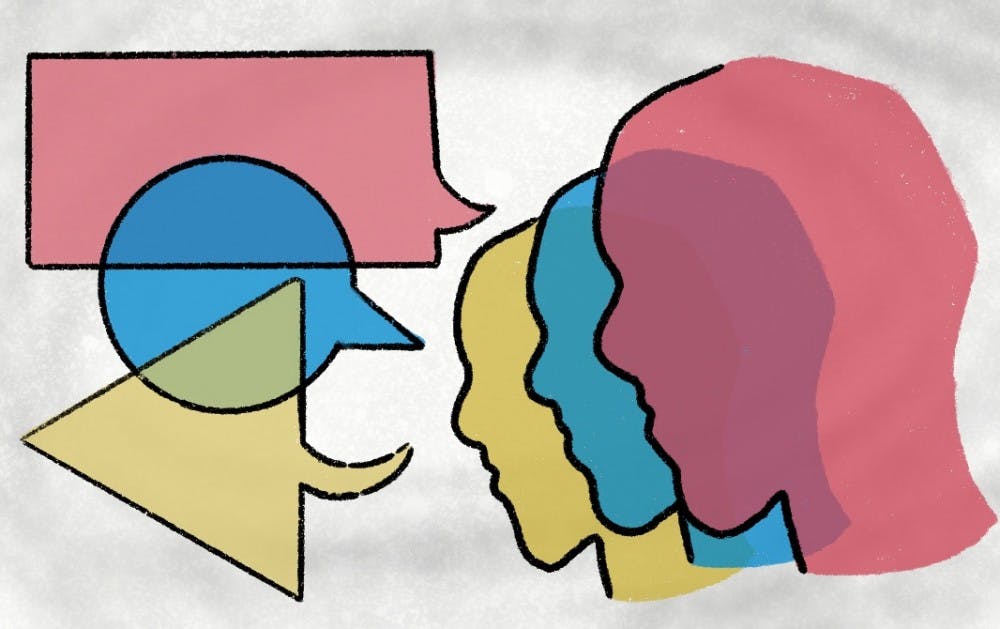With hundreds of opinions, perspectives and viewpoints seemingly being shot into oblivion (or the depths of the internet), it may be difficult for students to find columns and content regarding issues that impact their everyday lives.
Among the shouts into the void, these opinion columns cover what is impacting college students across the country and within the ASU community right now.
1. The Green New Deal Is What Realistic Environmental Policy Looks Like
by Jedediah Britton-Purdy for The New York Times
Whether you're focused on the environment or continuously keeping up with politics, you may have heard of the Green New Deal, which has sparked debate across the political spectrum.
Unlike other environmental proposals, this Green New Deal focuses more on how environmental policy and economic policy can work together. The deal considers everything from environmental impact and reform to economic inequality and seeks to reduce greenhouse gas emissions and help the job market within the U.S.
Regardless, college students should consider paying attention to environmental reform such as the Green New Deal as the debate becomes largely about their social and environmental futures.
2. Don't let Jussie Smollett and media distract from real tragedy
by Bill Goodykoontz for The Arizona Republic
Following the social media frenzy surroundings Jussie Smollett's alleged attack, the real issue that this situation poses has been underscored. Hate crimes are a very real and present occurrence in our country and victims, as Goodykoontz wrote, are "going to have that much harder a time having their voice heard."
On college campuses with a large community such as ASU, conflicting beliefs and opinions are a hot topic to debate. However, fostering healthy discourse and increased cultural, religious and additional representation are feasible options to help stop issues before they arises.
That is not to say that conversation and diversity will end hate crimes on college campuses, but respecting and recognizing victims may help counter the harmful effects of this viral controversy.
3. The Oscars and the Illusion of Perfect Representation
by Crispin Sartwell for The New York Times
Award shows represent many cultures, identities and traditions, but that is mainly due to attention brought from social media trends like #OscarsSoWhite which focused on issues previously swept under the rug. While this seems to be a big step toward a more accepting society, this push isn't having a real impact with tangible results.
The success of a culturally diverse movie or a "first" in a considerably white category does reflect the talent of the artist or team but doesn't reflect a widely changing society. College students can create necessary societal change by recognizing where it is most needed. As Sartwell writes, "Whatever the Grammys or Oscars looks like in the long run will have little actual impact on social justice."
4. We can believe women and seek due process at the same time
by Karrie K. Delaney for The Washington Post
While the title may seem straight forward, the legal process is not. Sexual assault victims face backlash within their communities about every aspect of their assault and should not face continued blacklash during the legal process.
Believing and validating victims is important because, as Delaney wrote, saying, "'I believe you' might be the first time a survivor feels that her pursuit of justice is viable."
With the many cases of sexual assault on college campuses, there must be a conversation regarding what individuals, including law enforcement, can do for victims of sexual assault. Recognition of victims and due process can go hand in hand without revoking a person's rights or voice.
5. Beto for president is a bad idea. To help his party, he needs to run for Senate
by David Byler for The Washington Post
Many celebrities and communities rallied behind Beto O’Rourke in the midterms causing talks of a potential presidential run, but O'Rourke may be better suited serving in a different part of government. He can bring about change, but he should also recognize the larger power he holds for the Democratic party.
On all sides of the political spectrum, every candidate — and voter — must see the bigger picture.
As 2020 approaches and the election heats up, candidates' campaigns and their respective social media following will as well. College students should, regardless of party, recognize the values of each candidate, what their campaign is truly promoting and consider if they are the best candidate for the future.
Reach the columnist at mfoxall@asu.edu and follow @mayafoxall on Twitter.
Editor’s note: The opinions presented in this column are the author’s and do not imply any endorsement from The State Press or its editors.
Want to join the conversation? Send an email to opiniondesk.statepress@gmail.com. Keep letters under 500 words and be sure to include your university affiliation. Anonymity will not be granted.
Like The State Press on Facebook and follow @statepress on Twitter.




